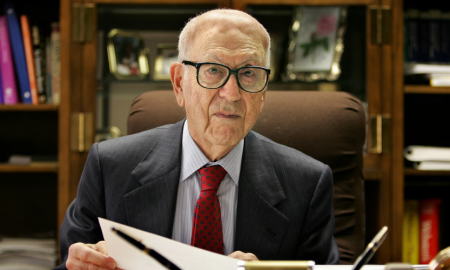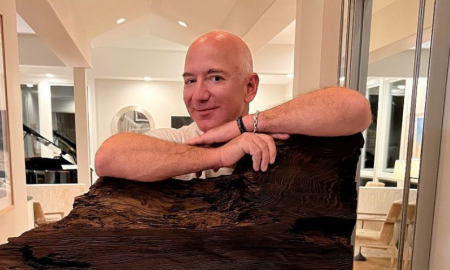
Why Americans in Their 80s Are Still Job Hunting

Charles Meoni, at 82 years old, believes he still has the skills to drive an 18-wheeler. Yet he faces rejection after rejection from trucking companies unwilling to consider him.
Meoni spent decades on the road, earning about $1,200 a week at his peak. Health issues forced him to step away when doctors discovered an aneurysm. After surgery earlier this year, he felt strong enough to return to work. Unfortunately, his old job was gone, and new applications have yielded no offers.
“Most places don’t want an 82-year-old driver,” he said, frustrated by the silence from hiring managers.
Local transportation companies avoid hiring him for even short routes. When a contact offered him valet work at a restaurant, he turned it down because of the heavy lifting and exposure to harsh weather.
Meoni and his wife, age 85, now face mounting financial pressure. She once ran a bar and later held a clerical position, but she also struggles to find new work. With around $20,000 left in savings and Social Security bringing in about $2,000 a month, the couple cannot cover basic costs, including home repairs.
“Everything fell down, and I’m just trying to survive right now,” Meoni explained. “Even $500 a week more would save me.”
Why Older Workers Struggle

Freepik | EyeEm | Older workers face rejection as age bias health worries and limited roles block their way back into jobs.
Meoni’s story is far from unique. Across the United States, many people in their 80s are trying to re-enter the workforce but encounter consistent roadblocks. The challenges are layered:
1. Age discrimination – Employers often assume older workers cannot keep pace with technology or physical demands.
2. Health concerns – Certain roles, such as construction or heavy labor, can pose real risks for those with medical conditions.
3. Limited opportunities – Even when capable, older workers often get overlooked for roles that match their skills.
AARP data highlights this pattern. Six out of ten employees over 50 report having encountered or seen ageism at work. This bias can mean fewer interviews, reduced training opportunities, or roles that pay far less than prior positions.
Myths About Older Workers
Advocates say many stereotypes about older employees are flat-out wrong. Ashton Applewhite, an author and anti-ageism activist, underlines that resilience and drive do not decrease with age. “If you give someone who’s been on the job for a while new challenges, they are as able and interested in adapting as a younger worker,” she explained.
In fact, older employees often bring valuable stability, a strong work ethic, and decades of experience. Studies show little evidence that they are less productive than younger staff. The problem lies not in ability, but in perception.
Where Jobs Do Exist
For Americans in their 80s who are able to secure employment, the options tend to fall into a handful of categories.
Many find retail roles that offer only limited hours, while others take on caregiving positions that demand patience and compassion. Some manage to land part-time clerical work or nonprofit roles that pay just slightly above minimum wage.
Although these opportunities provide a source of income, they are rarely enough to cover the full cost of living. For most, the motivation lies in supplementing Social Security benefits or stretching their retirement savings a little further.
A Growing Concern
The number of older Americans seeking jobs continues to rise. With savings gaps widening, more people find themselves working long past the traditional retirement age. Rising medical costs, shrinking pensions, and longer lifespans add to the financial pressure.
For those in their 80s, the challenge is sharper. Even when healthy and capable, many are overlooked. The labor market rewards youth, while experience often goes undervalued. This mismatch forces skilled seniors like Meoni to keep applying, hoping for a chance that rarely comes.
The Path Ahead for Older Workers

Freepik | Experts call for fair hiring and better support to give older workers a real chance at stability.
Ageism in hiring will not disappear overnight, but awareness is growing. Experts argue that companies must:
1. Offer training opportunities for all age groups.
2. Focus on skills, not age, during recruitment.
3. Recognize the economic value of experience in the workplace.
At the same time, stronger social support systems can ease financial stress for older adults who struggle to find work. Expanding affordable healthcare and improving retirement protections could help reduce the need for those in their 80s to seek employment just to survive.
Moving Forward with Determination
Charles Meoni’s story reflects both determination and frustration. He knows he can still drive, yet employers see only his age. His search reveals a broader truth: America still has a long way to go in addressing age discrimination and valuing older workers.
As long as financial pressures mount and opportunities remain scarce, more people in their 80s will keep filling out applications. They want to contribute, stay active, and support themselves. The real test lies in whether employers and policymakers will adapt fast enough to meet them halfway.
More in Business
-
`
Will Bitcoin Crash to $0 or Hit $500K in a Decade?
Bitcoin’s future divides analysts into two extreme camps. Some see it becoming one of the most valuable financial assets in history....
October 12, 2025 -
`
Can Anyone Really Blame Mariah Carey for ‘Leaving’ the Real World?
Mariah Carey isn’t like the rest of us. From the moment she opens her mouth and that voice pours out, she...
October 10, 2025 -
`
Intel Invests in Nvidia, but Ratings Remain Unchanged
Intel’s stock jumped more than 30% after news broke that Nvidia poured $5 billion into the company. The rally sparked renewed...
October 5, 2025 -
`
Homeownership vs. Real Estate Investment: What’s Better?
Homeownership has long been seen as the American dream. But today, more people are asking: Is it really the smartest way...
October 3, 2025 -
`
Why the Armani Fashion Empire Is Set for an IPO
Giorgio Armani, one of the most iconic names in global fashion, left behind a detailed plan for the future of his...
September 27, 2025 -
`
Why Do Pokémon Cards Outperform the S&P 500 As an Investment?
Pokémon cards have outperformed the stock market by a mile. Since 2004, they have delivered a staggering 3,821% return, according to...
September 27, 2025 -
`
America’s Billionaires Get Older—Millennials Wait for Wealth Transfer
Many of today’s billionaires don’t match the youthful tech-founder image often portrayed. While names like Elon Musk, Sam Altman, and Mark...
September 21, 2025 -
`
Can President Trump Legally Fire Fed Governor Lisa Cook?
Lisa Cook is right in the middle of one of the most explosive legal battles in Washington. President Trump wants her...
September 20, 2025 -
`
Jeff Bezos’ Advice for Millennials Who Want Financial Success
Millennials today have grown up in a world where instant access to products and services is the norm. From two-day deliveries...
September 13, 2025















You must be logged in to post a comment Login